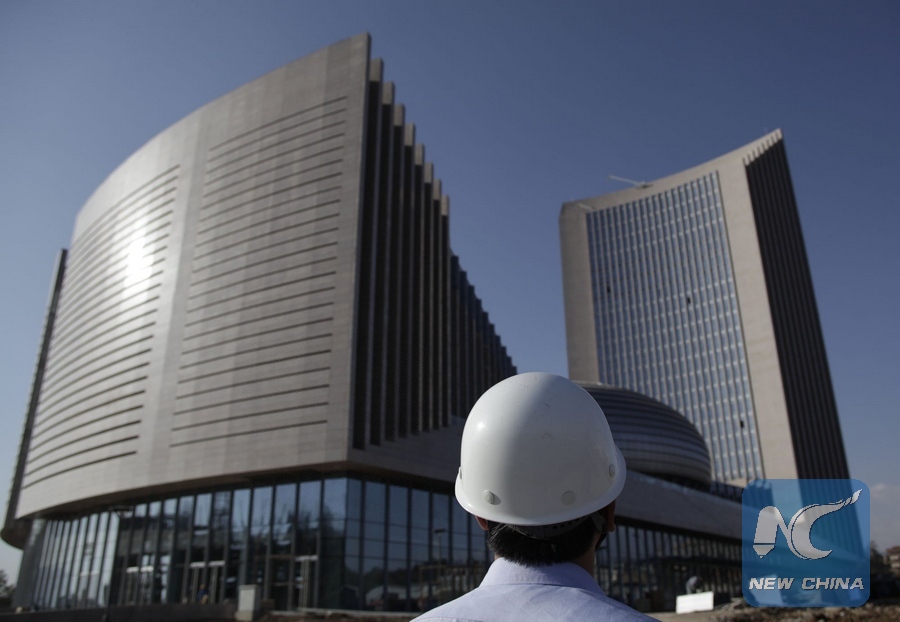Sino-African scientific collaboration hits new ground
China has prioritized strategic partnership with African countries in science, technology and innovations in order to address socio-economic and ecological challenges facing the continent, officials said on Sept. 4.
|
File photo shows a Chinese engineer looks at the African Union (AU) Conference Center in Addis Ababa, Ethiopia. [Photo/Xinhua] |
Cao Jinghua, Director General of Bureau of International Cooperation at the Chinese Academy of Sciences said that education, science, technology and culture remain key pillars of Beijing's diplomatic engagement with African countries.
"We are supporting training of African young scientists to pursue fields that cover environment, agriculture, health and water management. Their expertise is required to promote development in their native countries," Cao said.
He spoke to Xinhua on the sidelines of a conference on climate, ecosystems and livelihoods in Nairobi which was attended by dozens of scientists from China and Africa.
At the forum, African and Chinese scientists brainstormed on new strategies that can promote green growth and sustainable development in the continent.
Cao said the Chinese Academy of Sciences that co-sponsored the dialogue forum is ready to support the new generation of African scientists to improve their technical skills and innovative edge.
"We have recruited over 250 African students who are pursuing post-graduate studies in natural sciences in China. What Africa needs is abundance of scientific talents to propel its sustainable development agenda," Cao remarked.
He revealed that a collaborative venture between Chinese Academy of Sciences and African research institutes has addressed skills gap in critical disciplines like medicine, engineering and agriculture.
"We are facilitating training of young African scientists in Chinese institutions and they have been returning home to apply their skills in diverse areas like natural resources management, health and agriculture," said Cao.
He revealed that dozens of presidents of leading African Universities recently visited the Chinese Academy of Sciences to explore areas of collaboration.
Sino-Africa science and technology collaboration is embedded in the Belt and Road initiative that seeks to redefine global diplomacy and development.
Feng Feng, Director General of Bureau of International Cooperation at the National Natural Science Foundation of China, said that Beijing will not backtrack from its support for Africa's green agenda.
"We have invested enormous resources to support capacity building and research in diverse areas like climate change, ecosystems conservation, solid waste and chemicals management across Africa," said Feng.
He added that African scientists could borrow lessons from their Chinese counterparts whose expertise in harnessing local innovations to tackle ecological and health challenges is well documented.
